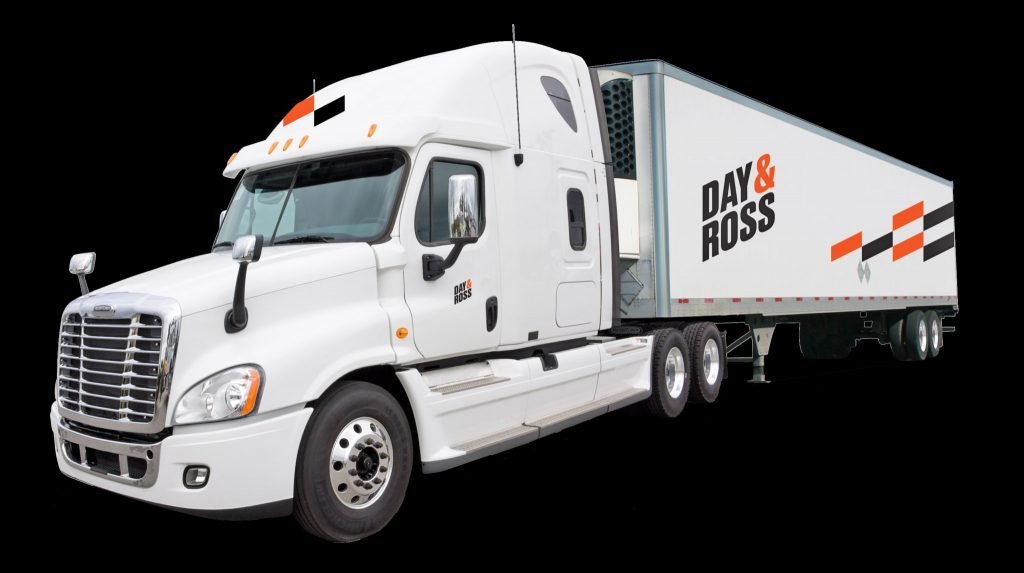Canadian trucking firm Day & Ross renews $100K commitment to train drivers
Day & Ross, one of Canada’s oldest and largest trucking companies, has decided to extend a partnership with a non-profit organization that provides training to truck drivers so they know how to identify and combat human trafficking.
As those who have occasion to travel the trans-Canada highway system may be aware, Day & Ross’ trucks are a constant presence along the long ribbons of highways and autoroutes throughout the country.
Warning signs

As this places Day & Ross’s drivers in a position to be the eyes and ears on Canada’s highways, the Hartland NB-based company believes that by training its drivers on what to watch for and by seeing the warning signs, they could be in a position to provide badly-needed assistance to those in need when it becomes a necessity.
Human trafficking is a form of modern-day slavery where people are bought and sold for forced labour or sex work. Although the problem is often overlooked, experts report that it is actually happening in Canada every day.
Victims of human trafficking are often targeted at truck stops and on highways. Day & Ross says that with the help of the non-profit Truckers Against Trafficking (TAT), reports from drivers have led to both arrests and victim recoveries across North America.
$100k donation to cause
For the second year in a row, Day & Ross is donating $100,000 to sponsor the organization. The sponsorship will not only be providing TAT with the funds to help educate drivers on identifying human trafficking scenarios, but will also allow them to harness the power of a large trucking fleet for an excellent cause.
The two organizations are working in tandem to provide the training, resources and information the truckers will need to report suspicious activity. For the first time ever, the TAT mobile exhibit is coming to Canada and to the Day & Ross main terminal hub to help educate their employees.
Featuring a theatre station and actual artifacts from trafficking cases, the TAT mobile exhibit helps tell the stories of victims and showcases the important role drivers play in combating human trafficking. All Day & Ross employees and drivers across Canada and the US will have access to the online TAT training.
Many victims are minors
Human trafficking has become a concern around the globe, and Canada is no exception. The U.S.-based National Human Trafficking Hotline (NHTH) reports that in the last five years, more than 41 per cent of the cases truckers have reported to them involved victims who are minors.
According to Statistics Canada, “there are various forms of human trafficking, including trafficking for forced labour, for the purpose of exploitative begging or for organ removal; however, trafficking for sexual exploitation is the most detected.” Day & Ross says its teams are trained to identify and report these incidents.
Trying to make a difference
“Truckers are the eyes and ears of our nation’s highways and are in a unique position to make a difference,” says Doug Tingley, Day & Ross’s Chief Operating Officer in Canada.

“With our drivers travelling from coast to coast, they’re able to make a difference in every province and every town along their route. To date, there are over 1.2 million truckers trained by Truckers Against Trafficking, making a significant difference in the fight against human trafficking.”
Began hauling potatoes
With more than 8,000 employees, drivers and owner operators across Canada and the US today, Day & Ross got its start in 1950 by hauling potatoes out of New Brunswick. Today, the company’s key services include Less Than Truckload (LTL) and Full Truckload (FTL), as well as cross-border transportation, logistics, dedicated fleets, and residential delivery.
The company offers a diversified portfolio of freight and delivery solutions to top companies across North America. For more than a decade, Day & Ross has also been consistently recognized as one of Canada’s best managed companies and has been named a top company for women to work for in the transportation sector for the past four years.



